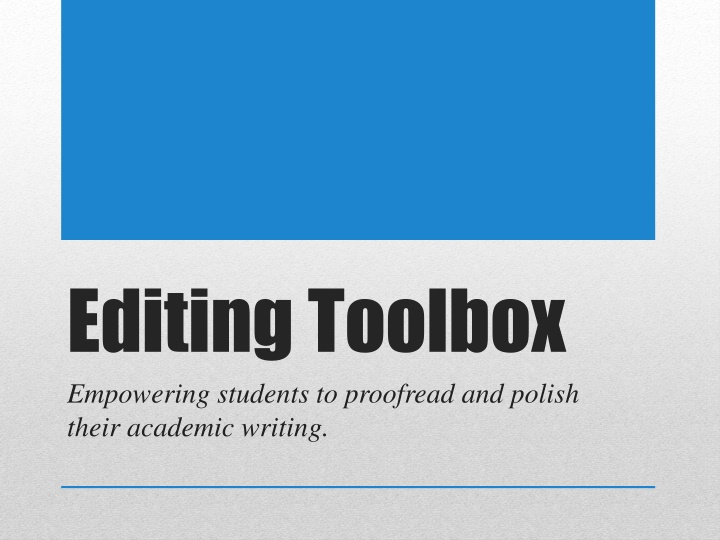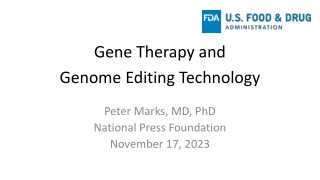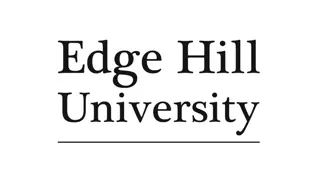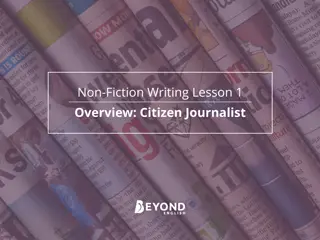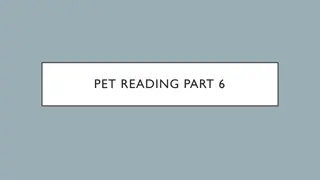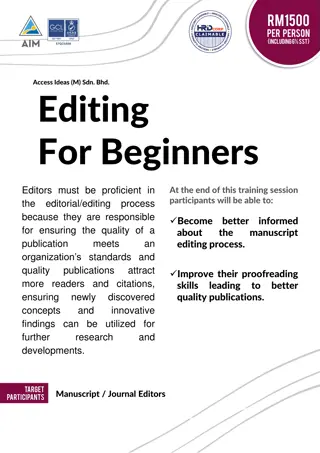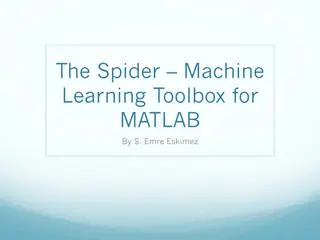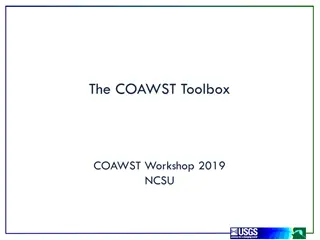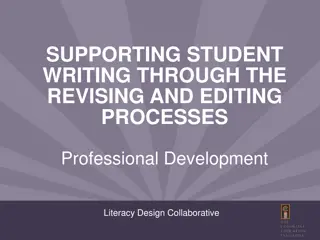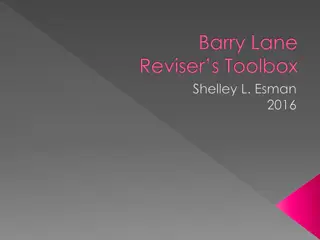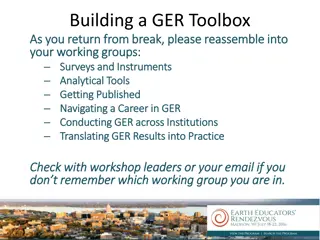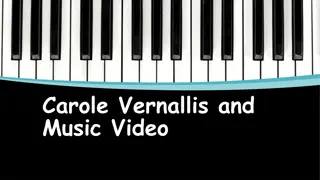Enhancing Academic Writing Skills Through Editing Toolbox and Scaffolded Learning
Empower students to proofread and polish their academic writing with the help of an Editing Toolbox and scaffolded learning approach. The program focuses on building grammar and language skills, providing quizzes for assessment, offering instant feedback, and encouraging students to engage in authentic editing practices. A pilot study showed improved scores and reduced queries, highlighting the effectiveness of this method in enhancing students' writing abilities.
Download Presentation

Please find below an Image/Link to download the presentation.
The content on the website is provided AS IS for your information and personal use only. It may not be sold, licensed, or shared on other websites without obtaining consent from the author.If you encounter any issues during the download, it is possible that the publisher has removed the file from their server.
You are allowed to download the files provided on this website for personal or commercial use, subject to the condition that they are used lawfully. All files are the property of their respective owners.
The content on the website is provided AS IS for your information and personal use only. It may not be sold, licensed, or shared on other websites without obtaining consent from the author.
E N D
Presentation Transcript
Editing Toolbox Empowering students to proofread and polish their academic writing.
Essay Writing for University: CQUniversity STEPS program Scaffolded learning and assessment Sentences > paragraphs > research/referencing > essay 12 week course: How to teach just enough grammar/language skills? How much is just enough ? (see Chanock , D Cruz & Bisset 2009) How big is the problem? How many errors do students make? (see Connors & Lunsford 1988) The goal
First six weeks Build just enough grammar/language knowledge to edit, i.e. To recognise and repair frequently made errors (see Ellis 2002) Use just enough minimum metalanguage 1. Sentence structure 2. Punctuation basics 3. Objectivity 4. Modality 5. Formatting references 6. Clarity The Resource: Editing Toolbox
Editing Toolbox quizzes: online 3 quizzes, fortnightly Each quiz based on previous two weeks learning Students do practice editing tasks each week in Study Guide quiz mirrors these tasks Low stakes assessment: each quiz 10 questions, 0.5 mark each (Total for three quizzes: 15% overall grade) Quizzes are open book : not a test of memory, but of application (see Nelson 1998) Learning & Assessment
Scaffold learning: skill building each week, practice exercises Instant formative feedback: Students can take control of learning and teachers can monitor progress Authentic editing practice: short answer question format Engagement: regular tasks, manageable Empower students: to proofread own work, understand marker feedback Rationale
Pilot: Term 3, 2015 (distance only term) Concerns: 1. Low scores 2. High query rate: Why did I get this wrong? Response: Continuous review and refinement of questions, resulting in better scores, fewer queries Results of Pilot
1. Students came up with alternative answers Rewrite the following sentence to remove the clich . In times of inflation, job cuts are par for the course. Our response: Added to answer bank if appropriate common, usual, normal Edited instructions to constrain possible answers Rewrite the following sentence to replace the clich (in this case, a four word phrase) with ONE clear and precise word. Refinements: Issue 1
2. Students made typos : misspelt words, missing words, extra spaces Our response depends on: How long did student spend on quiz? (2 hours allowed) Side lesson: editing takes time! Is issue technical ? Allow answer, edit question: e.g. hardcopy/hard copy/hard-copy Some task sentences edited to make typos less likely Distance students, who can often feel isolated, should participate in discussion forums wherever possible. Refinements: Issue 2
3. Students did not follow instructions (or overthought question) Our response depends on: How long did student spend? Side lesson: take time to read the question! Ambiguous instructions? Edited to be clear and explicit. Do not add, subtract or remove words (unnecessarily) For Term 1, introduced Practice Quiz Refinements: Issue 3
Better results, fewer queries in Term 1, 2015 Continued (now minor) refinements for Term 2, 2015 question clarification, omitting problematic words Refinements: Outcomes
Research pending, but from observations so far: 1. Language in student feedback and reflections demonstrates awareness I need to watch out for ambiguity and work on my clarity 2. Students engaging online with quizzes from Week 2 3. Students making better use of marker feedback, and self-identifying areas for review Learning outcomes
Markers can use language such as take care with run- ons knowing that students (should) understand what this means Markers/teachers can refer students back to Study Guide content and practice tasks for review Teachers can monitor student engagement and progress online from week 2, and have chance for dialogue (Chanock, D Cruz & Bisset 2009) Teaching outcomes
Chanock, K, DCruz, C & Bissett, D 2009, Would you like grammar with that?, Journal of Academic Language and Learning, vol. 3, no. 2, pp. 1-12. Connors, RJ & Lunsford, AA 1988, Frequency of formal errors in current college writing, or Ma and Pa Kettle do research , College Composition and Communication, vol. 39, no. 4, pp. 395-409. Ellis, R 2002, The place of grammar instruction in the second/foreign language curriculum , in Hinkel, E & Fotos, S (eds), New perspectives on grammar teaching in second language classrooms, Lawrence Erlbaum Associates, Mahwah, NJ. Nelson, GE 1998, On-line evaluation: multiple choice, discussion questions, essay, and authentic projects , paper presented at the Teaching in the Community Colleges Online Conference, Kapiolani Community College, Hawaii, April 7-9, pp. 1 References
